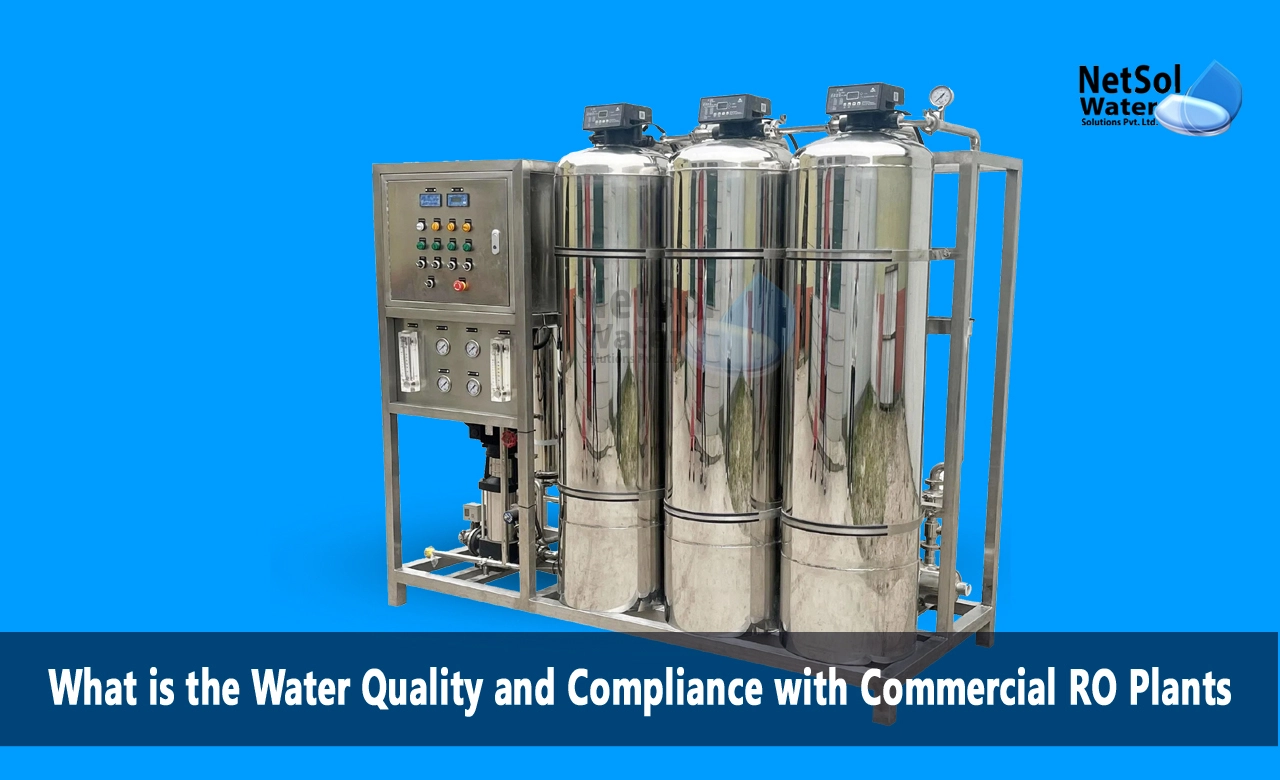What is the Water Quality and Compliance with Commercial RO Plants?
Reverse osmosis (RO) is a water purification process that uses a semipermeable membrane to remove dissolved salts and other contaminants from water. It is commonly used to produce drinking water in commercial and industrial facilities across India. Proper installation, operation, and maintenance of RO systems is essential to consistently produce water that complies with Indian drinking water standards.
RO works by applying pressure to force water through a semipermeable membrane, while rejecting the passage of dissolved salts. RO removes inorganic contaminants like fluorides, nitrates, and heavy metals, as well as microorganisms. The higher the amount of total dissolved solids (TDS) in the feed water, the more pressure required for the RO process.
Large capacity RO systems are utilized in hotels, hospitals, residential complexes and other commercial sites that demand significant volumes of purified water. These systems can generate anywhere from hundreds to thousands of liters per day based on the size and number of RO membranes.
Water Quality Standards in India
The Bureau of Indian Standards (BIS) has established standards for drinking water quality under IS 10500. This sets acceptable limits for bacteriological, physical, chemical and toxicological parameters in water. Key parameters relevant to RO systems include TDS, hardness, chlorides, fluorides, nitrates, and heavy metals like arsenic, lead, and cadmium.
There are also standards for bacteria levels and parameters like odor and appearance. While RO effectively removes many inorganic contaminants, additional treatment is required to address microbial contaminants and certain volatile organic compounds. That is why commercial RO systems often incorporate pretreatment, post-treatment and disinfection processes as well.
Monitoring and Maintenance
To maintain compliance with Indian drinking water standards, RO systems must be properly monitored, inspected and tested on a routine basis. Feed water sources should be evaluated for seasonal variability in quality. Product water must be checked regularly for key parameters like TDS, chloride, nitrates and any site-specific contaminants of concern.
Performance indicators to be monitored include salt rejection rate, recovery rate and flux rate through the membrane. Declining flux can signify fouling or scaling issues. Pressure readings indicate if adequate pressure is being applied. Monitoring ensures the RO continues operating efficiently to produce water that meets desired quality levels
RO membranes have a limited lifespan and should be replaced every 3-5 years. Routine preventive maintenance like membrane cleanings preserve the working life of the RO elements. Keeping detailed records of performed maintenance enables compliance during regulatory inspections. Installing monitoring tools like meters, probes and automatic valves provide early warning of issues.
Compliance Reporting and Recordkeeping
Central and state pollution control boards regulate the disposal of RO reject water in India. RO system operators must submit monthly reports on feed water source, discharged volumes of reject water and its TDS levels. These reports must comply with the timeline and requirements established by the regulating board.
For drinking water standards, there are currently no national level reporting mandates in India. However, individual states may have their own compliance reporting protocols that RO operators must adhere to. Detailed records should be maintained on feed water quality, RO membrane performance indicators, and treated water quality results.
Organized logbooks and electronic databases enable demonstration of compliance during regulatory or customer audits. Accurate paperwork also aids troubleshooting if water quality issues arise. Following established best practices for recordkeeping is essential for accountable operation of commercial RO systems in India.
Conclusion
Reverse osmosis enables production of purified, potable water for commercial and industrial facilities in India. However, responsible operation through monitoring, maintenance and recordkeeping is vital for RO systems to consistently meet drinking water quality standards. Compliance helps safeguard public health while building customer and regulatory confidence.
Do you need an advice or assistance on selecting the best water and waste water treatment unit? We have solutions for all your problems!
Let us know your problem, our experts will make sure that it goes away.
For an assistance or related query,
Call on +91-965-060-8473 Or write us at enquiry@netsolwater.com



